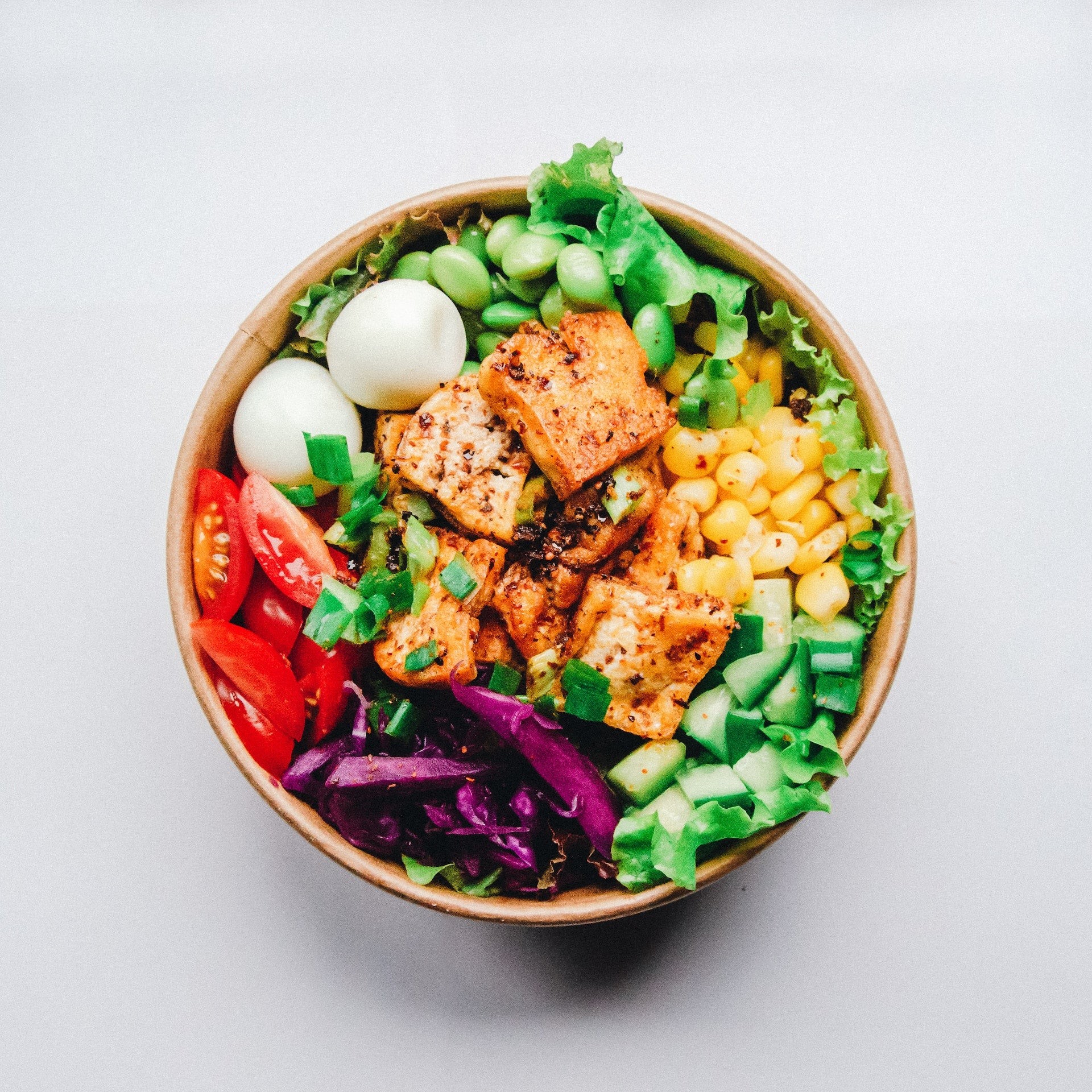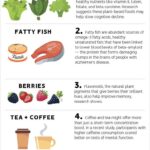Is Tofu A Whole Food? Absolutely! Tofu, a nutrient-rich, plant-based protein crafted from curdled soybeans, seamlessly integrates into a whole food, plant-based diet, bringing both culinary versatility and noteworthy health advantages. FOODS.EDU.VN illuminates the path to harnessing tofu’s capabilities, showcasing how it enhances sweet and savory recipes while serving as a robust foundation for plant-based nutrition. Delve into the world of tofu with us, exploring its various forms, health benefits, and culinary applications. Discover the comprehensive guide to incorporating this minimally processed whole food into your lifestyle, ensuring you make the most of its nutritional profile and culinary flexibility.
1. Discovering the Versatile Forms of Tofu
Tofu is not just a bland, white block; it’s a versatile ingredient that comes in a range of textures, each suitable for different culinary applications. From firm to silken, understanding the variations of tofu opens up a world of possibilities in the kitchen. Let’s explore the main types of tofu and their best uses.
1.1. Firm Tofu: The Meaty Marvel
Firm tofu is dense and retains its shape remarkably well during cooking, offering a satisfyingly meaty chew. It’s perfect for grilling, stir-frying, or breading and frying, as it stands up to high heat beautifully. Firm tofu excels at absorbing bold sauces and marinades, making it a versatile option for a variety of dishes. The robust texture and adaptability to flavors make it a staple in plant-based cooking.
1.2. Soft Tofu: The Silky Sensation
Soft tofu boasts a silky smooth and delicate texture, which makes it ideal for simmering in miso soups, where it gently falls apart to enrich the broth’s savory flavor. Its pillowy texture also blends seamlessly into creamy dips and dressings, adding a velvety smoothness. Often considered the Chinese-style counterpart to Japanese silken tofu, soft tofu brings a unique touch to both traditional and innovative recipes.
1.3. Silken Tofu: The Creamy Dream
Silken tofu is renowned for its ultra-smooth, custard-like texture, achieved through a unique curdling process. This creamy soy-based food blends effortlessly into shakes and smoothies, enhancing their texture and nutritional content. Silken tofu is also a star in desserts like chocolate mousse, providing a dairy-free alternative with a luxurious feel. Firmer silken tofu serves as an excellent base for dairy-free Alfredo sauce or can be crumbled to mimic ricotta cheese in dishes like veggie lasagna, showcasing its adaptability.
1.4. Extra-Firm Tofu: The Crispy Champion
Extra-firm tofu distinguishes itself with an exceptionally dense and chewy texture. Containing the least moisture, it maintains its shape impressively during cooking. Baking or pan-searing extra-firm tofu turns it into crispy cubes that are perfect for adding a protein boost to salads and rice bowls. The pieces absorb delicious flavors while offering a delightful textural contrast against softer ingredients, making it a favorite for those seeking a satisfying crunch.
2. Unveiling the Health Benefits: Why Tofu is a Nutritional Powerhouse
Tofu continues to climb the superfood charts, and rightfully so. This plant-powered protein source is packed with nutrients that promote overall wellness. Let’s delve into the science-backed health benefits of incorporating more tofu into your diet. Understanding these advantages can help you make informed choices about your nutrition, enhancing your health and well-being.
2.1. Enhancing Heart Health with Tofu
Tofu contains several components that improve biomarkers for cardiovascular wellness. The isoflavones in tofu lower LDL cholesterol levels, reducing plaque buildup in arteries. Research indicates that higher tofu intake is linked to lower blood pressure and arterial stiffness. A study involving over 200,000 participants revealed that those consuming more tofu had an 18% lower risk of developing heart disease, according to Harvard School of Public Health. Incorporating just half a serving of tofu into your daily diet can significantly impact your heart health.
2.2. Tofu’s Role in Reducing Cancer Risk
Observational studies suggest a correlation between higher soy food intake and a reduced risk of certain hormone-related cancers. A study found that breast cancer patients who consumed tofu were 21% less likely to die over nine and a half years. The isoflavones in soybeans may help limit the proliferation of cancer cells. Women who include tofu and other soy products in their diet may experience a significantly lower risk of developing cancer. This may be attributed to tofu’s anti-inflammatory properties and its ability to mitigate oxidative stress.
2.3. Building Muscle with Tofu’s Complete Protein
Tofu provides an impressive 21.8g of protein per half-cup serving, as reported by the American Heart Association. It also contains all the essential amino acids required to efficiently build and maintain muscle mass, making it a complete protein source. While tofu contains fat, it is predominantly healthy, unsaturated fat, crucial for lean muscle development. Incorporating tofu into an active lifestyle supports muscle health and overall physical performance.
2.4. Strengthening Bones with Tofu’s Rich Nutrients
In addition to muscle-building protein, tofu is rich in nutrients like calcium and magnesium, which are essential for bone health. A 4oz serving of tofu offers over 430mg of calcium and half of your daily manganese needs. This combination helps build and maintain strong bones, reducing the risk of osteoporosis over time. Regular consumption of tofu can contribute to long-term bone health and overall skeletal strength.
2.5. Tofu’s Assistance with Weight Management
The satiating protein and fiber in tofu support weight regulation, making it an excellent choice for those trying to maintain a healthy body weight or lose weight. Research has shown that adding tofu to your daily diet can assist with reducing belly fat and body weight. Tofu’s weight management benefits likely involve improved satiety and enhanced metabolism. With 10g of filling protein per serving, tofu boosts post-meal fullness, helping you eat less without feeling deprived. This plant-based protein also requires more calories for the body to break down compared to fats or carbs, further aiding in weight management.
3. Nutritional Composition of Tofu: A Detailed Breakdown
Understanding the nutritional content of tofu can help you appreciate its health benefits and incorporate it wisely into your diet. Let’s crunch the numbers on tofu’s nutritional profile, focusing on firm tofu as an example, while noting that different types of tofu may have slightly different nutritional values.
3.1. Macronutrient Profile of Tofu
A 3.5-ounce serving, approximately half a cup, of raw firm tofu contains:
| Nutrient | Amount |
|---|---|
| Calories | 144 |
| Fat | 9g |
| Carbohydrates | 3g |
| Fiber | 2g |
| Protein | 17g |




3.2. Micronutrient Richness of Tofu
Tofu also provides significant amounts of essential micronutrients, expressed as a percentage of the daily value (%DV):
| Nutrient | %DV |
|---|---|
| Calcium | 53% |
| Iron | 15% |
| Magnesium | 14% |
| Manganese | 51% |
| Zinc | 14% |
| Vitamin A | 18% |
With just half a cup of plain tofu, you can obtain a quarter of your daily calcium needs, along with substantial amounts of muscle-building protein and satiating fiber. Tofu truly stands out as an all-around nutritional powerhouse.
4. Addressing Concerns: Understanding the Risks of Eating Tofu
While tofu offers numerous health benefits, it’s essential to be aware of potential risks and considerations. Some people are concerned about the soy isoflavones naturally found in tofu and other soy products. However, studies indicate minimal cause for concern when consuming soy foods in normal dietary amounts.
4.1. Soy Isoflavones and Hormonal Effects
The compounds in soybeans weakly mimic estrogen in the body. While large doses via supplements can significantly impact hormone levels, smaller amounts from whole soy foods show little effect. Human trials have revealed no changes in key male sex hormones like testosterone at normal intake levels, regardless of portion size. This suggests that moderate consumption of tofu is unlikely to disrupt hormonal balance.
4.2. Potential Impact on Thyroid Health
One potential downside is related to thyroid health. The isoflavones in soy foods may disrupt thyroid function, particularly for those with pre-existing hypothyroidism. However, negative effects typically disappear once soy intake is discontinued. Individuals with thyroid conditions should monitor their soy intake and consult with a healthcare professional.
5. Maximizing Flavor and Texture: Tips for Consuming Tofu
Properly storing and preparing tofu makes all the difference in texture and taste. Follow these simple tricks to enhance your culinary experience.
5.1. Selecting and Storing Tofu
- Choose fresh tofu with tight packaging and clear liquid. Avoid tofu with grey liquid or unusual odors.
- Store tofu submerged in water in the refrigerator, changing the water daily. It can keep for 3-7 days past the expiration or sell-by date.
5.2. Preparing Tofu for Cooking
- Always drain and press out excess moisture before cooking to improve texture. Use a tofu press or weighted plates.
- For firmer tofu, freeze and then thaw it to create a more chewy, spongy texture.
5.3. Enhancing Flavor
- Soak tofu in sauce or marinade for 30+ minutes to boost flavor. It pairs well with soy sauce, lemon, chili, and more.
- Experiment with baking, sautéing, scrambling, or crumbling to explore the versatile ways to cook tofu.
6. Culinary Versatility: Diverse Ways to Prepare Tofu
Tofu’s adaptability shines in both sweet and savory dishes, making it a staple for innovative and traditional recipes alike.
6.1. Savory Applications of Tofu
- Use firm or extra-firm tofu for stir-fried dishes or bake it into crisp, golden cubes.
- Crumble tofu into pasta sauces, salads, and bakes for a protein boost.
6.2. Sweet Applications of Tofu
- Blend soft or silken tofu into smoothies and creamy desserts for added richness.
6.3. Recipe Ideas: Baked Tofu for Meal Prep
For easy meal prep, toss cubed, extra-firm tofu pieces with oil, soy sauce, and your preferred seasonings. Bake at 400°F for 30 minutes until chewy or crispy, depending on the thickness. Add the ready-to-eat baked tofu to your meals throughout the week.
6.4. Quick Weeknight Dinner: Tofu Veggie Stir Fry
Slice extra-firm tofu into cubes and sear in an oiled pan over high heat until crispy. Mix in sliced bell peppers, broccoli, and onions, and sauté for a few more minutes. Finish with a splash of soy sauce, sesame oil, and red pepper flakes. Serve hot over brown rice or quinoa for a delicious and nutritious meal.
7. Addressing Misconceptions: Is Tofu Bad for Men?
Many misconceptions surround the consumption of soy foods like tofu, particularly among men who worry about the phytoestrogen content. Let’s address these concerns and clarify whether tofu poses any risks to masculine health or if men can safely enjoy its nutritional benefits.
7.1. Phytoestrogens and Testosterone Levels
Some men avoid tofu and other soy products due to the fear that phytoestrogens may lower testosterone levels. While isolated soy isoflavones at very high levels in supplements can significantly impact hormones, the amount of soy consumed through a normal diet is unlikely to cause harm. Large amounts of soy foods would need to be consumed daily for any adverse effects to occur.
7.2. Evidence from High-Soy Diets
Asian populations with high lifelong soy food consumption exhibit perfectly normal fertility and cancer rates. The limiting factor appears to be 100mg of isolated soy isoflavones daily, equivalent to approximately 4 servings of extra-firm tofu, as noted by Hone Health. Sticking within moderate portions poses no issues.
7.3. Benefits for Men
Unless medically contraindicated or soy allergies exist, men can benefit from incorporating a couple of servings of whole soy foods into their daily diet. Tofu provides a valuable source of protein, essential nutrients, and health-promoting compounds that support overall well-being.
8. Delicious and Nutritious: Healthy Tofu Recipes to Try
Let’s explore some mouthwatering ways to start cooking with tofu today! These recipes are not only delicious but also packed with nutrients to support a healthy lifestyle.
8.1. Chef’s Will’s Tofu Scramble with Vegetables (Breakfast)
This vibrant tofu scramble recipe from Whole Harvest Executive Chef Will Harris offers an explosion of flavors and textures to energize your morning. Chef Will expertly combines crumbled tofu with a medley of fresh vegetables sautéed in cozy spices and herbs. Served atop whole-grain toast, it’s a gratifying and feel-good way to start your day.
The tofu provides a mild, silky texture that absorbs the vegetable flavors, creating a protein-packed base. Turmeric and cumin lend an earthy essence and beautiful golden color. Overall, this scramble marries wholesome nutrition from tofu and vegetables with comforting flavors, making it a favorite among plant-based eaters.
Ingredients:
- 1/2 block firm tofu, crumbled
- 1/2 onion, chopped
- 1 bell pepper, chopped
- 1 cup mushrooms
- 1 garlic clove, minced
- 1 tsp each: turmeric, cumin
- Salt and pepper
- 2 slices whole grain bread
Instructions:
- Sauté onion, bell pepper, mushrooms, and garlic over medium heat until tender.
- Add crumbled tofu and spices; cook until tofu is heated through and slightly browned.
- Toast whole grain bread to desired crispiness.
- Serve the veggie tofu scramble generously atop the toast. Enjoy!
8.2. Bonus: Dessert Option – Chocolate Tofu Pudding
Satisfy your sweet tooth cravings without added sugar or dairy with this rich and creamy chocolate pudding made with silken tofu. It’s a delicious and high-protein snack that you will crave.
Ingredients:
- 2 cups of silken or soft tofu
- ¼ cup of high-quality cocoa powder
- ¼ teaspoon of vanilla extract
- 4 pitted dates
- 2 tablespoons of maple syrup
- ¼ cup of drinking water or soy milk
Steps:
- Put all the ingredients into a blender and blend until smooth.
- Use a spatula to mix the contents, ensuring everything is well combined.
- If the mixture is too thick, add more soy milk or water to adjust the consistency.
- If it’s too thin, simply add more tofu. Enjoy!
8.3. Soy-Sesame Tofu (Lunch)
For lunch, try this pan-seared tofu recipe from bloggers Todd Porter and Diane Cu, which marinates cubed tofu in a sweet-savory Asian-inspired sauce. Toasted sesame seeds and sliced green onions garnish this simple, flavorful dish.
The hot oil helps crisp and brown the tofu, while the sauce made with ginger, soy, and brown sugar infuses every bite with flavor. In minutes, you have a protein-packed, plant-based main perfect for serving over rice or vegetables.
8.4. Crunchy Tofu Tacos (Dinner)
Explore these playful tacos from chef Joe Kim, combining crispy fried tofu with Korean spices and fun toppings like kimchi and peanuts. The tofu absorbs the chile powder and garlic-ginger marinade while frying for a fiery flavor in every bite. The crunchy, meaty texture wrapped in a warm tortilla makes these an irresistible fusion snack.
The crispy-fried tofu soaks up incredible spice flavor for a meaty and fiery plant-based taco filling. Topped with cooling, creamy elements like hoisin and kimchi, these creative tacos make an irresistible fusion snack.
9. Conclusion: Embracing Tofu as a Whole Food Choice
Tofu is not only a whole food but also a versatile and nutritious addition to any diet, particularly for those embracing a plant-based lifestyle. Its rich nutritional profile, health benefits, and culinary adaptability make it an excellent choice for enhancing your meals and supporting your well-being.
10. FAQs: Answering Your Questions About Tofu
Here are some frequently asked questions about tofu to further clarify its benefits and uses.
10.1. What Exactly Is Tofu Made Of?
Tofu is made from soybeans that are crushed to produce soy milk, which is then curdled, pressed into blocks, and cooled. It’s a simple process that results in a versatile and nutritious product.
10.2. Is Tofu a Good Source of Protein?
Yes, tofu is an excellent source of plant-based protein, containing all the essential amino acids needed by the body.
10.3. Can Tofu Help Lower Cholesterol?
Yes, the isoflavones in tofu have been shown to lower LDL cholesterol levels, reducing the risk of heart disease.
10.4. Is Tofu Safe for Men to Eat?
Yes, tofu is safe for men to eat. Moderate consumption of tofu does not negatively impact testosterone levels and can provide numerous health benefits.
10.5. How Should Tofu Be Stored?
Tofu should be stored submerged in water in the refrigerator, with the water changed daily to maintain freshness.
10.6. What’s the Best Way to Press Tofu?
The best way to press tofu is to use a tofu press or place it between two plates with a weight on top to remove excess moisture.
10.7. Can Tofu Be Frozen?
Yes, tofu can be frozen to change its texture, making it chewier and more absorbent.
10.8. Is Tofu Good for Weight Loss?
Yes, tofu can be beneficial for weight loss due to its high protein and fiber content, which promote satiety and help regulate weight.
10.9. How Can Tofu Be Flavored?
Tofu can be flavored by marinating it in various sauces, spices, and herbs to absorb the flavors.
10.10. What Are Some Creative Ways to Use Tofu?
Creative ways to use tofu include adding it to stir-fries, scrambles, desserts, and tacos for a nutritious and delicious twist.
If exploring all the ways to enjoy tofu yourself seems daunting or you seek further culinary inspiration, FOODS.EDU.VN is here to guide you. Our website offers a wealth of resources, including detailed recipes, nutritional information, and expert tips to help you make the most of this versatile ingredient.
Visit FOODS.EDU.VN to discover more plant-based recipes and culinary tips that will elevate your cooking and enhance your well-being. Join our community of food enthusiasts eager to take control of their health and incorporate satisfying, wholesome options into their daily routine.
Address: 1946 Campus Dr, Hyde Park, NY 12538, United States
WhatsApp: +1 845-452-9600
Website: FOODS.EDU.VN
Explore the flavorful world of tofu with foods.edu.vn and unlock its full potential for a healthier, more delicious lifestyle.
